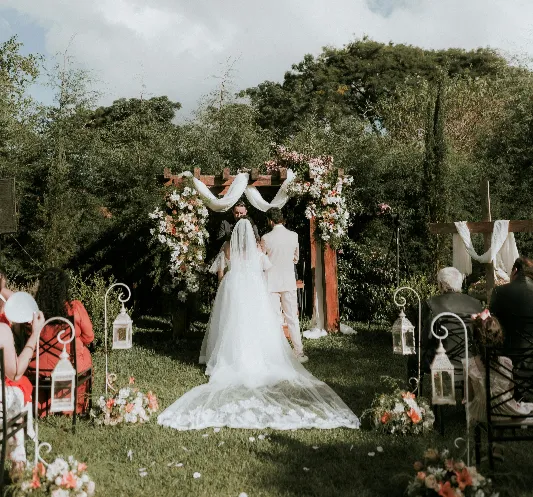
The Mpumalanga High Court has declared a second marriage invalid, upholding the rights of the first wife who maintained to be the deceased's legal wife.
Image: Pexels
In a ruling that highlights the intricacies of customary marriages, the Mpumalanga High Court has declared a second marriage invalid, upholding the rights of the first wife who maintained to be the deceased's legal wife.
The case centres on an emotional legal battle following the tragic death of a 43-year-old man, who died in a car accident in February 2023, leaving behind two women fighting to be recognised as the legal wife in order to claim from his government pension fund.
The first wife, who entered into a marriage under customary law with the deceased, approached the high court seeking to assert her status as the sole legal wife. She argued that the deceased's second marriage, celebrated in 2020, was invalid as it occurred without her consent and without a legal dissolution of their original union.
According to court documents, the couple’s union began in 2017, when emissaries were sent to negotiate lobola between the families, culminating in an agreement that included a lobola of R12,000 which was paid in cash and 13 cattle which were to be delivered in future.
The couple’s marriage was celebrated in a customary ceremony, and they had one child together. However, the marriage was not registered with the Department of Home Affairs until after the husband's death.
Two years later, in 2019, the deceased fell in love with another woman; he left his first wife and moved in with the new woman and their relationship blossomed, leading to a civil marriage in 2020 which was registered at Home Affairs.
In the second marriage, during lobola negotiations, a payment of R20,000 being ten cattle each valued at R2,000 was agreed upon and it was paid immediately.
All this took place without the first wife's knowledge, while she was still married to the deceased.
After the husband's death, the first wife played no role in his funeral; she watched from a distance as his family accorded the widow’s status to the second wife who had ascended to the seat of a chief mourner. The obituary even reflected the second wife as the deceased’s surviving spouse.
In her defence, the second wife submitted that she didn't know about the first wife and because the deceased family recognised her as the surviving spouse, his first marriage should be declared invalid.
She added according to Swati and Ba-Pedi customs which were observed in lobola negotiations between her family and that of the deceased, the deceased did not need consent from the first wife to conclude a valid customary marriage.
Moreover, she said the fact that he moved out of the home he shared with the first wife and married her, was proof that his first marriage had irretrievably broken down.
Alternatively, she said the court should recognise both marriages as legal under customary law.
Deputy Judge President Takalani Vincent Ratshibvumo noted that by law, a husband in a customary marriage who wishes to enter into a further customary marriage with another woman, must make an application to the court to approve a written contract which will regulate the future matrimonial property system of his marriages.
He added that a customary marriage may only be dissolved by the court through a decree of divorce and until the divorce is granted, the assets in a customary marriage remain the joint property of both the husband and the wife.
"Without such an order, the prospective new spouse inherits the conundrum of marrying a person whose assets comprise of a half portion of the undivided estate as the other half belongs to his yet to be divorced spouse," he said.
Ultimately, the court ruled in favour of the first wife, declaring the second marriage void on the grounds of its unlawful commencement.
sinenhlanhla.masilela@iol.co.za
IOL News
Get your news on the go, click here to join the IOL News WhatsApp channel.
Related Topics: